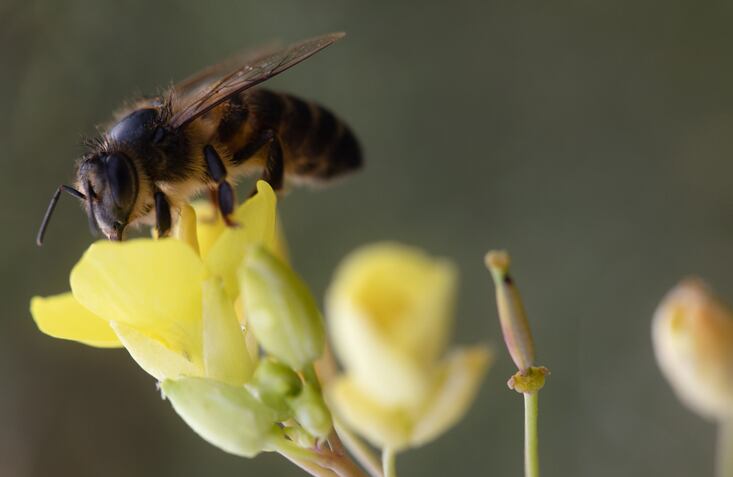Glyphosate, marketed as RoundUp, is a common and increasingly controversial herbicide. The chemical was patented by Monsanto in the mid-1970s. That company concurrently developed proprietary crop strains that could tolerate field applications of the herbicide. In more recent times it has also been used as a desiccant on those same crops to bring them to harvest-ready status on a prescribed schedule. That usage has been increasing in recent years.
Herbicide implicated in cancers, honey bee population collapses
But the herbicide, once advertised as benign from human health and environmental standpoints, has embroiled parent company Bayer (which acquired Monsanto in a $66 billion deal in 2016) in an increasing number of lawsuits. Bayer agreed in June 2020 to pay $10 billion to settle lawsuits alleging that RoundUp was implicated in a range of cancers.
In addition, the widespread use of the chemical has been implicated in gut microbiota disturbances among honey bees that leave them open to a range of diseases and parasite attacks. Wild honey bee populations have reportedly declined by as much as 50% in North America and Europe, though a USDA report from 2018 found that commercial honey bee managers are coping with the challenges so far.
“The method development of these products is very challenging and time consuming, requiring skilled techniques,” said Sabinsa founder and chairman Dr. Muhammed Majeed. “Given Sabinsa’s mission to improve human health, confirming purity of the materials we sell makes sense.”
Tailoring the tests
The residue definition for glyphosate in wheat for the US and the EU requires measuring the amount of glyphosate in the product. Codex, on the other hand, requires also measuring the amount of N-acetylglyphosate, which is a metabolite of glyphosate; Australia requires glyphosate, N-acetylglyphosate, and AMPA (another metabolite). Sabinsa said its test method analyses both Glyphosate and also its major metabolite AMPA. The total of these two is reported as Glyphosate. Glyphosate rapidly gets converted to AMPA after absorption in soil, which is why Sabinsa’s scientists decided to monitor AMPA as well.
Formulation partners, end users focused on issue
Shaheen Majeed, president-worldwide at Sabinsa, which is based in Bengaluru, India, said the supplier has been getting more and more requests for these kind of test results from US-based clients. The issue seems to mirror concerns about the proliferation of GMO crops in North America.
“We have been getting customer requests, largely from US based customers currently, and their concerns are growing,” Majeed said.
“There are parallels in demand for glyphosate testing with growth in demand for Non-GMO Project verification. Sabinsa has embarked on the journey of having several of our top ingredients Non-GMO Project Verified and we see the same requests coming from our clients in terms of glyphosate. For now, it’s being spec’d into many of the Sabinsa ingredients, with more being added every day,” he added.
Katie Banaszewski, QC Analytical Lab Manager for finished dietary supplement manufacturer NOW, based in Bloomingdale, IL, said consumers are becoming increasingly aware of the issue.
“Glyphosate is widely used and can travel outside areas of direct application through run off or drift even in areas where the farmers reject its use. Some crops are more likely to have pesticide residues than others, so we screen them carefully. We know from consumer research that it’s extremely important to NOW customers that we guarantee the highest quality products that are free from harmful contaminants such as pesticides residues. We also know that glyphosate is a hot button issue with our customers despite assurances from many regulatory agencies that the use of glyphosate is safe at relatively high concentrations,” she said.

